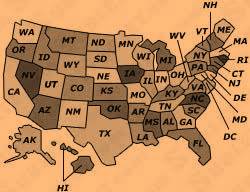The two prior pieces about the issue of special language in military divorce cases dealt with a) wording to secure the Survivor Benefit Plan for the non-military spouse, and b) wording required by the Frozen Benefit Rule so that the retired pay center would accept the pension division order. This “magic words” installment deals with the all-important issue of jurisdiction. If the court lacks jurisdiction, then your efforts would be wasted. Be sure that the judge makes the right findings.
The issue of jurisdiction under 10 U.S.C. 1408, the Uniformed Services Former Spouses’ Protection Act, is covered at subsection (c)(4) of the statute. Since most cases are settled with a consent order or a separation agreement incorporated into the divorce decree, the likely “magic words” you’ll need to use would be: “The court has jurisdiction to divide the uniformed services retired pay of the defendant, John Doe, due to his consent to the jurisdiction of the court.”

When the case is contested, you’ll have to look elsewhere for a jurisdictional basis for the order dividing military retired pay. The usual base to use is domicile. If your state is the “state of legal residence” of John Doe – that is, his domicile – then the order might state: “The court has jurisdiction to divide the uniformed services retired pay of the defendant, John Doe, due to his domicile in the state of East Virginia.”
Don’t be deceived by “home of record.” That phrase is not intended to mean one’s domicile. It’s only a reference to the place from where John Doe entered the service, and to which his household goods will be shipped upon his discharge. It may be his domicile, but that’s not dead certain. For example, when I entered military service in December 1971 [that so long ago that dinosaurs ruled the earth!], my domicile and my home of record were both Ohio, since I went on active duty from Cleveland. When I was transferred to Ft. Bragg in 1972, both were still Ohio. But in 1976 when I decided to obtain reciprocity admission to the N.C. Bar, I changed my domicile to N.C. (by changing my car title and driver’s license, my bank, my voting records, my personal property tax listing, my state income tax info, etc.), even though my home of record remained Ohio. You can look up the incidents of domicile in a Silent Partner infoletter, “Divorce and Domicile,” at www.americanbar.org > Family Law Section > Military Law Committee, or at www.nclamp.gov > Publications. The infoletter contains a checklist of every conceivable item that would be relevant in a domicile determination.
The last test is rarely used. It involves the exercise of jurisdiction by the court in East Virginia due to John’s residing in that state, but not due to military orders. Thus your order might use the following “magic words” for jurisdiction, assuming that you have the facts to back this up: “The court has jurisdiction to divide the uniformed services retired pay of the defendant, John Doe, due to his residence within the territorial jurisdiction of the court other than because of military assignment.” This test is only used when there is a nearby state boundary, such as the following – John is stationed at Eglin AFB, Florida, but he’s living just across the state line in Gulf Shores, Alabama, to be near his aged parents (and to get rent-free lodging). In that case, Alabama could exercise
jurisdiction over the military pension division, since John’s residing in Alabama is not due to his military assignment in that state.
The rules for military pension division are published by DFAS, the Defense Finance and Accounting Service; they’re found at the Dept. of Defense Financial Management Regulation, Vol. 7b, Chapter 29. The rules state that for a court order to be accepted, it must explicitly state the basis for the court’s exercise of jurisdiction. So don’t just recite the usual “blanket language” of “This court has jurisdiction over the parties and the subject matter of this case” without adding the proposed language set out above.
Anything less than the specific basis for jurisdiction will result in a rejection letter from the retired pay center, whether that’s DFAS (for Army, Navy, Air Force and Marine Corps) or the Coast Guard Pay & Personnel Center (for USCG, and for the commissioned corps of NOAA and PHS).
All of this (and more) can be found in Chapter 8 of THE MILITARY DIVORCE HANDBOOK (Am Bar Assn., 3rd Ed. 2019). The website is: https://www.americanbar.org/products/.
-Mark Sullivan








